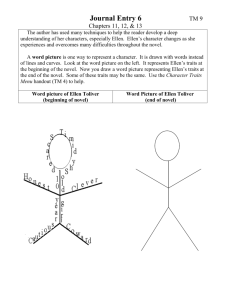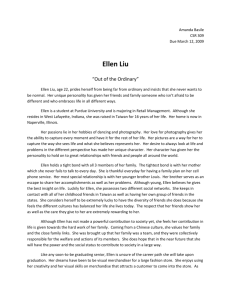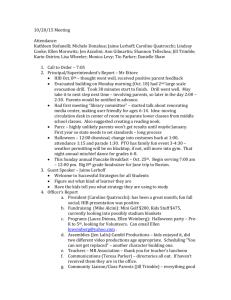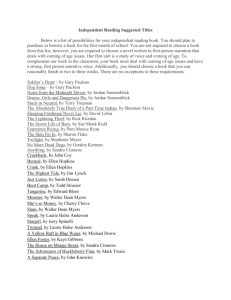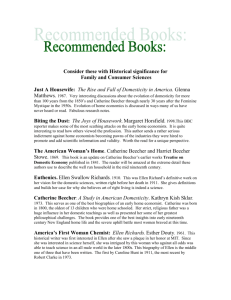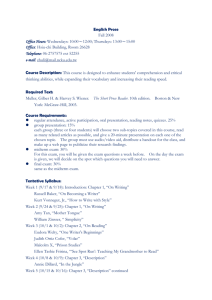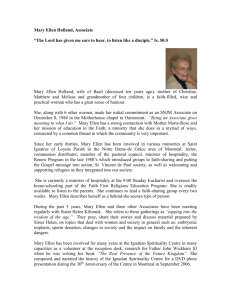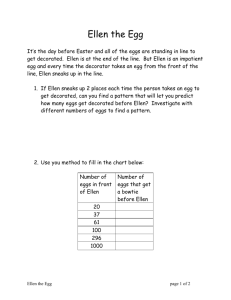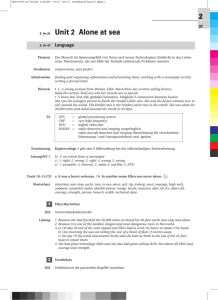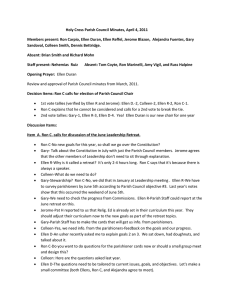Ellen Foster Essay Topics
advertisement
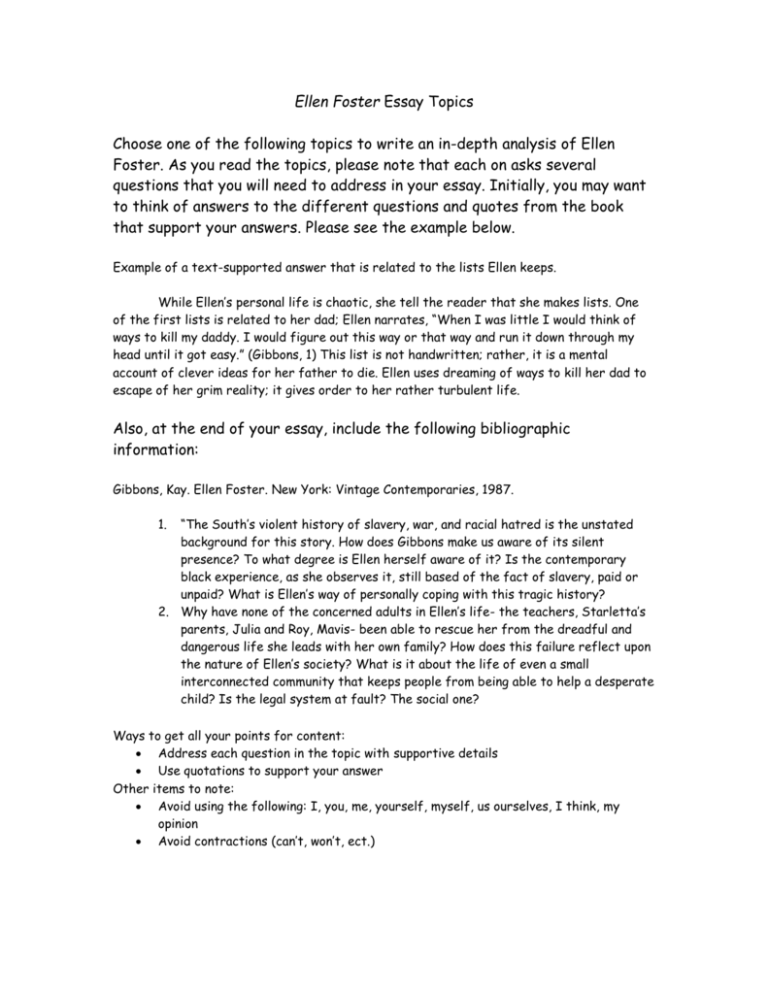
Ellen Foster Essay Topics Choose one of the following topics to write an in-depth analysis of Ellen Foster. As you read the topics, please note that each on asks several questions that you will need to address in your essay. Initially, you may want to think of answers to the different questions and quotes from the book that support your answers. Please see the example below. Example of a text-supported answer that is related to the lists Ellen keeps. While Ellen’s personal life is chaotic, she tell the reader that she makes lists. One of the first lists is related to her dad; Ellen narrates, “When I was little I would think of ways to kill my daddy. I would figure out this way or that way and run it down through my head until it got easy.” (Gibbons, 1) This list is not handwritten; rather, it is a mental account of clever ideas for her father to die. Ellen uses dreaming of ways to kill her dad to escape of her grim reality; it gives order to her rather turbulent life. Also, at the end of your essay, include the following bibliographic information: Gibbons, Kay. Ellen Foster. New York: Vintage Contemporaries, 1987. 1. “The South’s violent history of slavery, war, and racial hatred is the unstated background for this story. How does Gibbons make us aware of its silent presence? To what degree is Ellen herself aware of it? Is the contemporary black experience, as she observes it, still based of the fact of slavery, paid or unpaid? What is Ellen’s way of personally coping with this tragic history? 2. Why have none of the concerned adults in Ellen’s life- the teachers, Starletta’s parents, Julia and Roy, Mavis- been able to rescue her from the dreadful and dangerous life she leads with her own family? How does this failure reflect upon the nature of Ellen’s society? What is it about the life of even a small interconnected community that keeps people from being able to help a desperate child? Is the legal system at fault? The social one? Ways to get all your points for content: Address each question in the topic with supportive details Use quotations to support your answer Other items to note: Avoid using the following: I, you, me, yourself, myself, us ourselves, I think, my opinion Avoid contractions (can’t, won’t, ect.)


